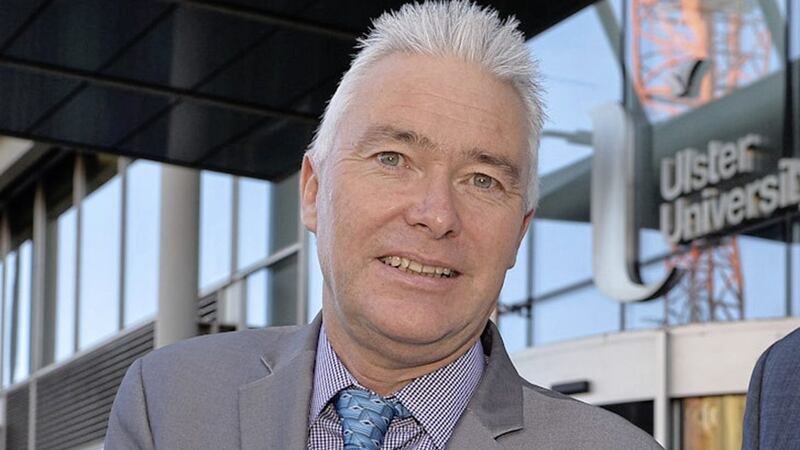Local government reform promised massive savings, better services and an end to duplication. Four years on from what was billed as 'the biggest shake-up in local government for a generation' Political Correspondent John Manley asks whether any of its goals have been realised....
THE first problem you encounter when attempting to assess the relative success of 2015's local government reform is a lack of government analysis. Annual Audit Office reports notwithstanding, central government has so far neglected to carry out an appraisal of the policy that had at its heart a reduction in the number of councils in Northern Ireland from 26 to 11 and the number of councillors from 582 councillors to 420.
It is hoped this failing can be remedied later this year when the Department for Communities carries out a review of the 'cost benefit analysis' of local government reform, covering the period up to the end of March this year. The move follows repeated calls to act from the local government spending watchdog.
With a dearth of hard data to assess the merits of the council shake-up four years on, we must rely on opinion, which predictably is split.
Derek McCallan,lchief executive of the Northern Ireland Local Government Association (Nilga), the body representing the north's 11 so-called super councils, believes reform has "in the main" been a success, citing even the fact that it happened as a positive.
Mr McCallan points to each council's community plan and the near clearing of a decade-long backlog of planning applications as two examples of where local authorities have excelled under their new remit.
With some justification, he bemoans Stormont's refusal to devolve urban regeneration to councils, a power that would have neatly dovetailed with planning and community planning, potentially making both more effective.
But when it comes to savings, arguably the big selling point ahead of local government reform, the Nilga chief executive says: "There's simply no way to objectively confirm a net savings figure."
He says the savings of £438 million forecast in a PWC report were to be over 25 years. The Nilga chief says staffing levels, thought to be one of the main areas where costs would be reduced, are "broadly the same" as in 2015 – though this is after councils have outsourced a number of services to the private sector, shedding jobs along the way.
In the coming years, Mr McCallan says Nilga's objective is make the north "more sustainable" by creating more jobs and wealth, while ensuring communities are "more involved in democratic decision making".
"To that end, the first stages of local government reform, as part of a wider, long term, review of public administration, gives us some optimism, with the understanding that new responsibilities need new resources and new skills," he says.
"We’ll continue to work diligently on all these aspects in this electoral term."
The Nilga chief is not alone in believing that the amalgamation of councils has enabled them to capitalise on the opportunities offered by City Deals.
Mark H Durkan, the former Stormont environment minister who oversaw local government reform, says the process has "brought more decision making powers closer to the communities that will benefit".
"We have given towns and cities the power to set out a bold vision for the future and the means to implement those visions," he says, adding that the process to date "hasn’t been a painless".
"We still have serious concerns about delays in the planning system, the failure to devolve regeneration powers and friction within councils but the reform package we delivered is working," the Foyle MLA says.
"We now need to fix those areas that can be improved, and we can only maximise the potential of local government with an executive to take decisive action."
Three of the parties in the executive at the time – the DUP, Sinn Féin and Alliance – are also positive about the impact of local government reform. However, Ulster Unionist leader Robin Swann is less sanguine.
"Before the latest so-called reforms we wanted to see fewer streamlined councils delivering far more powers and far doing so far more efficiently," he told The Irish News.
"Whilst I am proud that it was the Ulster Unionist Party that first put in motion the reform of our local councils well over 15 years ago, the changes that were eventually agreed by the DUP and Sinn Féin in 2014 represented a squandered opportunity and an extravagant waste of public money."
He characterises the process as a "litany of mistakes, broken promises and deliberate power-grabs".
Citing the swathe of east Belfast which was excluded from the city's council area, the North Antrim MLA believes "boundaries were carved up along sectarian lines".
"People in Dundonald to this day have never been told how they supposedly have more in common with the city of Lisburn than they do with Belfast," he says.
He too is critical of the executive's failure to devolve urban regeneration powers, which are "now mothballed in Stormont".
But Mr Swann's greatest disappointment is the projected savings, which he says are "no longer being talked about".
"Going from 26 councils to 11 should have seen a serious reduction in duplication and a subsequent reduction in staff numbers, yet even though there were only modest new powers transferred, according to figures from the NI Local Government Auditor last year there were 9,800 full time equivalent council staff – in 2013-2014, the year before the reforms, there were 9,700," he says.
“The fact that we have far fewer councils actually employing more staff is the starkest illustrator so far to me that the reforms have failed.”
The UUP leader claims that at the time the reforms were being pushed through Stormont there was a "frightening lack of economic scrutiny of the proposals".
Sound familiar?








